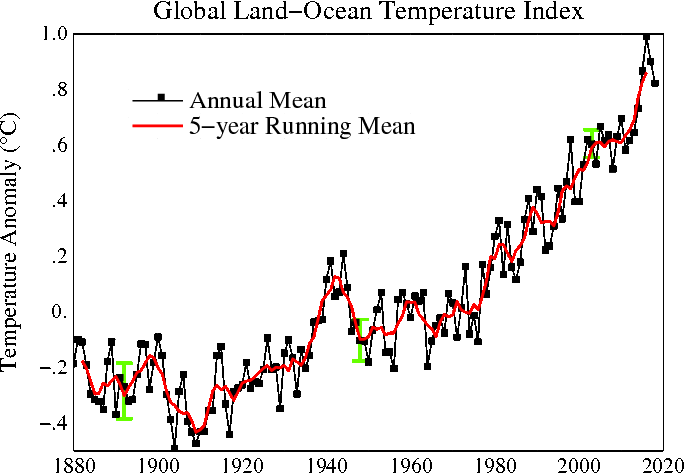skookerasbil
Platinum Member
And get this...........only 1% of science journals articles follow the scientific method.
In other words........."climate science" is a fraud s0ns!!
J Scott Armstrong: Fewer Than 1 Percent Of Papers in Scientific Journals Follow Scientific Method
Fewer than 1 percent of papers published in scientific journals follow the scientific method, according to research by Wharton School professor and forecasting expert J. Scott Armstrong
According to Armstrong, forecasts from the Intergovernmental Panel on Climate Change (IPCC) violate all eight criteria.
“Why is this all happening? Nobody asks them!” said Armstrong, who says that people who submit papers to journals are not required to follow the scientific method. “You send something to a journal and they don’t tell you what you have to do. They don’t say ‘here’s what science is, here’s how to do it.'”
J Scott Armstrong: Fewer Than 1 Percent Of Papers in Scientific Journals Follow Scientific Method - Breitbart
Of course, the alarmist k00ks will kneejerk on the source of the article.........a typical stunt pulled by snowflakes these days. Highly ghey btw..........

But check the link and see the 8 criteria........climate change science doesn't give a shit about them.
In other words........."climate science" is a fraud s0ns!!
J Scott Armstrong: Fewer Than 1 Percent Of Papers in Scientific Journals Follow Scientific Method
Fewer than 1 percent of papers published in scientific journals follow the scientific method, according to research by Wharton School professor and forecasting expert J. Scott Armstrong
According to Armstrong, forecasts from the Intergovernmental Panel on Climate Change (IPCC) violate all eight criteria.
“Why is this all happening? Nobody asks them!” said Armstrong, who says that people who submit papers to journals are not required to follow the scientific method. “You send something to a journal and they don’t tell you what you have to do. They don’t say ‘here’s what science is, here’s how to do it.'”
J Scott Armstrong: Fewer Than 1 Percent Of Papers in Scientific Journals Follow Scientific Method - Breitbart
Of course, the alarmist k00ks will kneejerk on the source of the article.........a typical stunt pulled by snowflakes these days. Highly ghey btw..........


But check the link and see the 8 criteria........climate change science doesn't give a shit about them.


 . The people are sick and tired of the fraud of climate science.
. The people are sick and tired of the fraud of climate science.




